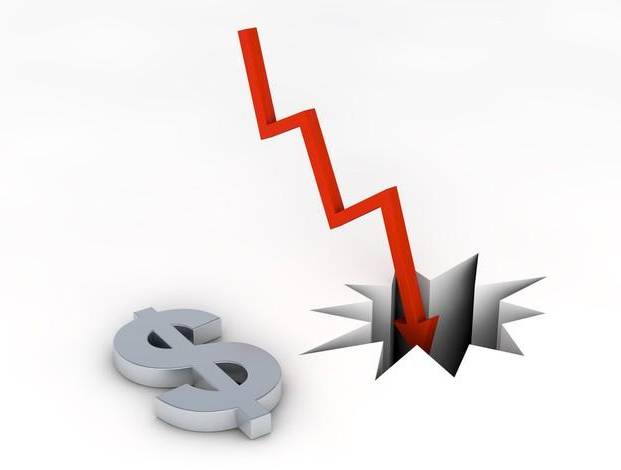Investment has countless rules, but risk is the first.
Friends who often invest in stocks or funds are aware that the recent performance of the U.S. stock market is simply unbearable to watch. That's right, it has fallen again and again and again.
In just a few days, the tech index represented by the Nasdaq 100, which was at a high of 20,690, has already dropped to the current 19,522 points, a decline of 5.64%.
This is a terrifying situation. If the index has fallen so much, one can imagine how much more severe the decline in individual stocks must be.
Does this mean that the U.S. stock market is about to return to a bear market?
Is the U.S. stock market about to return to a bear market?
To answer this question, let's analyze it from several perspectives.
Firstly, it is undeniable that the Nasdaq 100 index, which represents the U.S. stock market, especially in the technology sector, is currently at a high point.
After the U.S. stock market experienced a significant pullback in 2022, the Nasdaq 100 index has risen by as much as 70% in the nearly two years since then. Not only did it quickly fill the gap caused by the pullback, but it also set a historical high.
It is clear that this is an extremely irrational increase. It has far exceeded its inherent value, creating a bubble, so the risk at this time is much greater than the opportunity.When examining the current valuation of the U.S. stock market, the price-to-earnings (P/E) ratio is around 37 times, which is at a historical position above 90%. This is a typical overvaluation and is not cheap at all.
Therefore, the current U.S. stock market is bubble-prone, with unreasonable gains and at an absolute high level. The risk faced at this time of entry is very significant.
As for the question, is the U.S. stock market about to enter a bear market?
The answer is no. The probability of sudden risk events like a black swan occurring is very small. It is simply that the gains have been too large, and it is necessary to digest the valuation and the bubble in a form of time for space.
So, in the short term, the U.S. stock market will face a significant correction, which is very reasonable. It is impossible to keep rising with the bubble.
Once the bubble is completely digested and returns to a reasonable value, its investment value will continue to be highlighted.

That is to say, when the P/E ratio of the Nasdaq 100 index drops from over 30 times to over 20 times (the corresponding decline is about 20%).
So, from the current perspective, a correction in the U.S. stock market is necessary and inevitable. Even if it does not adjust now, it will be adjusted later.
As ordinary investors, what should we do?1. We must acknowledge the high risk of the current U.S. stock market. Don't think that those who are afraid of heights are destined to suffer; this is the cognition of a fool. We should think from the opposite side of the fool.
2. The current situation requires reducing the proportion of U.S.-based holdings. In the short term, there is a high probability that satisfactory returns will not be given, and there is more risk.
3. It is necessary to wait. Waiting is a very painful and long process, and no one knows how long it will take. However, under the premise of the high risk of the current U.S. stock market, waiting should be considered an essential part.
4. Look for other high-quality investment targets. The overvaluation of the U.S. stock market does not mean that the stock markets around the world are overvalued. Therefore, you can look for those markets with cost-effectiveness and high investment value elsewhere.
Summary
Therefore, on the whole, the U.S. stock market is not about to return to a bear market. It's just that the previous increase was too large, exceeding its inherent value, and there is a need for a correction.
Of course, we must recognize the risks of the current U.S. stock market and learn to stay away from it.
Where the flock goes, there is always a mess, so don't be the sheep in the flock.
Buffett once said, "When others are greedy, I am fearful; when others are fearful, I am greedy." This is very appropriate for the current situation.So now, are you still willing to buy US stocks at high prices?
If you have other ideas or insights about the above points, please feel free to comment.
Here, we will update fund management knowledge and common sense from time to time, to help you avoid pitfalls. If you are very interested in funds, you can come and have a look at any time!
Like and follow, and may wealth come rolling in!
Comments